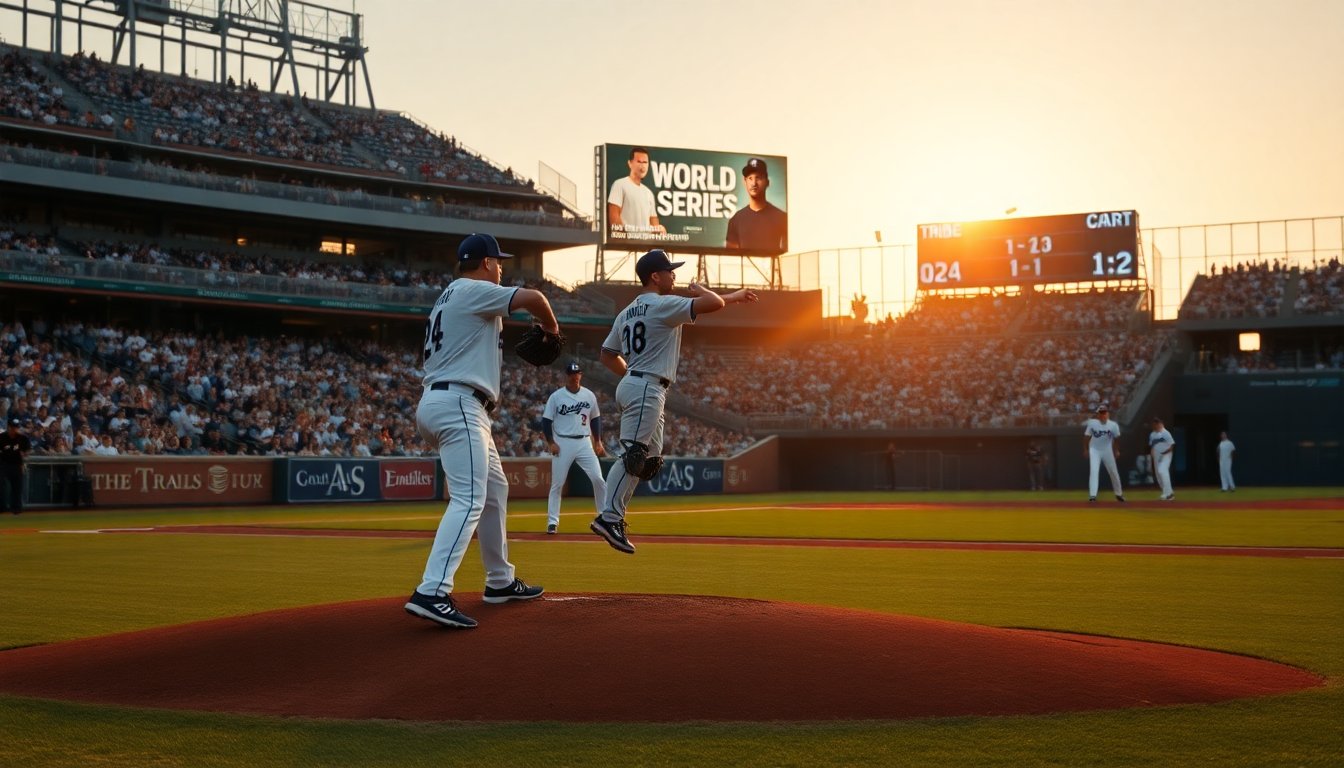Table of Contents
The World Series Game 2 featured a compelling matchup between the Los Angeles Dodgers and the Toronto Blue Jays. The game transformed from a highly anticipated pitching duel into a decisive victory for the Dodgers. With Yoshinobu Yamamoto on the mound, the Dodgers not only leveled the series but also reinforced their championship ambitions.
Entering the seventh inning tied at one, the Dodgers shifted the momentum significantly. The turning point occurred when Will Smith and Max Muncy each hit solo home runs, propelling the Dodgers to a 5-1 victory.
Yamamoto’s historic performance
Yamamoto’s performance was exceptional as he pitched a complete game, striking out eight batters and allowing only four hits. This achievement marks the first complete game in the World Series since Johnny Cueto in 2015, and the first back-to-back complete games in the postseason since Curt Schilling in 2001. With this outing, Yamamoto has secured his place in Dodgers history.
A look at the game’s flow
The game commenced with the Dodgers taking an early lead in the first inning. Freddie Freeman hit a double, setting up Smith’s RBI single that brought him home. Despite facing a first-and-third situation with no outs in the first inning, Yamamoto displayed composure, striking out two batters and escaping the jam unscathed.
The Blue Jays tied the game in the third inning, thanks to a sacrifice fly from Alejandro Kirk, allowing George Springer to score. However, the momentum shifted in the seventh when Smith’s crucial home run broke the tie. Shortly after, Muncy’s homer extended the Dodgers’ lead, effectively ending Kevin Gausman’s night. Gausman had pitched well, retiring 17 consecutive batters before these pivotal hits.
The strategic depth of the Dodgers
Yamamoto’s strategic approach was evident as he effectively mixed his pitches and maintained a low pitch count throughout the game. His command on the mound drew praise from Dodgers manager Dave Roberts, who stated that allowing him to finish was an easy decision given his dominance. Yamamoto’s final statistics were impressive: nine innings pitched, one earned run, and no walks.
Gausman’s commendable outing
Conversely, Gausman also delivered a strong performance, completing 6.2 innings, allowing three runs while striking out six batters. Despite the loss, manager John Schneider recognized Gausman’s effort, noting that he matched Yamamoto pitch for pitch until the seventh inning. Unfortunately, Gausman’s two mistakes against skilled hitters proved costly, leading to the Dodgers’ offensive surge.
In the eighth inning, the Dodgers extended their lead further, capitalizing on a wild pitch from relief pitcher Jeff Hoffman and an RBI groundout from Smith. The Dodgers effectively seized control, leaving the Blue Jays with limited opportunities to recover.
Looking ahead in the series
With the series now tied 1-1, the Dodgers return to Los Angeles for Game 3, gaining the advantage of home field. The stakes are high, and the Blue Jays must regroup and strategize as they potentially face Yamamoto again if the series extends.
This victory not only underscores the Dodgers’ strength but also highlights the critical nature of pivotal moments in baseball. The ability to capitalize on mistakes and perform in crucial situations can define a team’s postseason journey.


